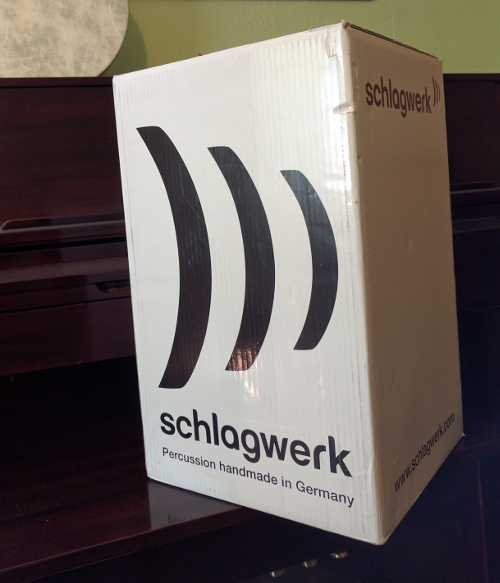Cajon and Practice - Part 1
For my birthday my wife bought me a cajon (a wooden box drum). (Set aside for a moment your cognitive dissonance of the thought of a 64 yr. old Zen Buddhist Monk playing something as cool as a cajon.) Here is my current plan on learning to play.
The Plan
 I am not even going to open the box until I can play the cajon. Here’s the plan. Every Sunday I am going to watch YouTube cajon videos (like the one above and this one and this one). So I will do that for at least 2 hours every Sunday. And I bought a bunch of books from Amazon about playing the cajon. Here is an excerpt from one:
I am not even going to open the box until I can play the cajon. Here’s the plan. Every Sunday I am going to watch YouTube cajon videos (like the one above and this one and this one). So I will do that for at least 2 hours every Sunday. And I bought a bunch of books from Amazon about playing the cajon. Here is an excerpt from one:
There is no question about this relationship of the top arm to the level where tone is produced. If the fingers, hand, or forearm have any bearing down on their own initiative, the tone simply does not come off. They each become an integrated unit with the top arm control; they make the top arm effective in contacting tone.
I am not entirely sure what that means but it sounds important. So I will memorize it. I am going to dedicate 1 hour a day to reading these books and memorizing the material in them. So that is my plan. It is the start of June now and if I do this to mid-August that will be about 100 hours devoted to learning to play the cajon. Then I will take the cajon out of the box, unwrap it, sit down and play the cajon flawlessly.
How’s that for a plan?
Maybe you are thinking that I won’t successfully play the cajon and I bet it is that you think I am not spending enough time on my new hobby. So here is my new plan.
The Revised Plan
Basically it is the same as the first except I will spend 20 hours per week watching YouTube videos and reading books and I will not open the box until Christmas. That is 1,000 hours devoted to learning to play the cajon–10 times more than the previous plan. Won’t it be a lovely gift to my wife to wake up on Christmas morning to some virtuosic cajon beats.
I think everyone can see that this plan is totally misguided. What is missing is practice, and plenty of it. If I did deliberative practice for those 20 hours per week instead of reading and watching YouTube videos, I probably could lay down some dope beats by Christmas. In the musical realm it is quite obvious to all of us that practice is the key.
But what about our spiritual life? This blog post is nearly identical to a talk I gave years ago about this topic. Here is the YouTube link. What people view as a foolhearty plan related to the cajon, they may view as valid when related to a spiritual path. Going to Sunday service, watching inspirational YouTube videos, reading books. That sounds good. But if that is the extent of it, it is as misguided as my cajon plan. What is missing is practice and plenty of it. You may think I DO practice. I read something in a book and apply it to my everyday life. That may work for some things, but I think it is equivalent to me buying a cajon and immediately joining Santana. I will read books at night and apply what I learn to me playing on stage with Santana. But clearly, a Santana stage performance is too complex to just jump into and apply what I learned watching YouTube videos. All the band members of Santana have spent years learning to play their instruments. And the band itself practices for hours. Hiromi, a phenomenal jazz pianist says this about her band:
It requires a lot of rehearsal to play the songs. My band always tells me I better change the group’s name from Sonicbloom to Boot Camp!
Similary, life is too complex and chaotic to immediately transfer what you learn in books to everyday situations. For example, you have probably read multiple times about mindfulness, but chances are, in the middle of your work day you may not be mindful. Racing around, traffic, kids, the 101 things you need to do. You are not focused on the suggestions from a book–you are just trying to survive in the modern world. Deliberative practice, including meditation and compassion practice (tonglen), enables us to work with what we learn from books so that it naturally arises without effort in everyday situations. All of a sudden, without thinking, without effort, we have moments of mindfulness.
Hiromi says “Focus, continuous training, and love and passion for what you do, more you practice, more you can fly” and “I wanted to bring what Jackie Chan does in Kung Fu to what I do on piano.” The more you meditate, do compassion training, and other practices the more you can fly in everyday life.
In my next post I will dive into this a bit more.